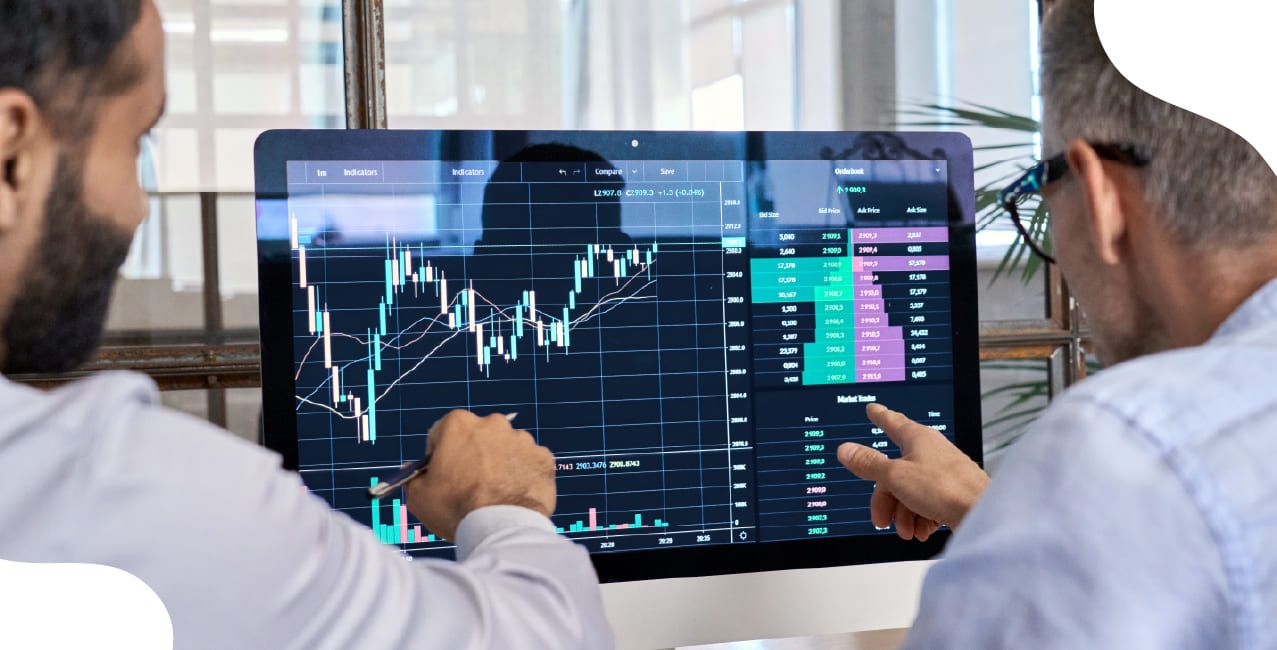What Is The Futures Market, And How Do Traders Use It

Check Your Loan Eligibility Now
By continuing, you agree to LoansJagat's Credit Report Terms of Use, Terms and Conditions, Privacy Policy, and authorize contact via Call, SMS, Email, or WhatsApp
Summary Points:
- Futures trading helps you fix today’s price for future buying or selling, so you stay safe even if prices change later.
- You can earn money by predicting market movements, but wrong guesses can cause big losses since futures use high-risk leverage.
- Futures are used by farmers, traders, and shopkeepers to avoid price shocks and manage their business income better.
- Futures trading is not easy. Beginners should start with small amounts, learn carefully, and avoid big risks to protect their money.
Bonus Point: Black Futures Month celebrates Black history and imagines a bright future by honouring Black innovators, scholars, and community excellence across generations.
Futures trading is a financial agreement to buy or sell an asset at a predetermined future price.
It helps traders manage risk or speculate by locking in prices, regardless of future market conditions at expiration time.
Imagine you're a gold jewellery shop owner. It's May, and you plan to buy 1 kg of gold in August to make Diwali jewellery. Right now, gold is priced at ₹60,000 per 10 grams, but you fear it may rise.
So, you enter a futures contract in May to buy gold in August at ₹60,000.
Now, come August:
- If gold rises to ₹65,000, you save ₹5,000 per 10g. That's ₹5,00,000 saved on 1kg!
- If gold falls to ₹58,000, you pay ₹2,000 extra per 10g, but at least you were protected from a big price spike.
Isn’t that interesting? That’s how futures trading helps people manage price risks smartly!
In this blog, we’ll break down how the futures market works, who uses it, and how you too can understand and benefit from it step by step.
Read More – How to Do Options Trading – Step-by-Step Beginner’s Guide
What is the Futures Market?
A futures market is where traders buy and sell contracts for future delivery of assets. It helps lock in prices today for commodities or securities to be delivered on a future date.
Let’s understand it with the help of an example:
Let’s say you are a wheat farmer, and it’s August. You expect to harvest 1000 kg of wheat in December, but you’re worried that the price of wheat might drop by then.
- Today’s price of wheat: ₹25 per kg
- You want to lock in this price to avoid future risk.
So, you enter into a futures contract in August to sell 1000 kg of wheat in December at ₹25/kg.
Now, let’s fast forward to December:
If the market price drops to ₹22/kg, you don’t suffer a loss.
- You still sell at ₹25/kg, as agreed in the futures contract.
- You gain ₹3 per kg compared to the market.
If the market price rises to ₹28/kg, you miss out on higher profits.
- But you still sell at ₹25/kg, as per the contract.
- This is the trade-off for avoiding risk.
Futures markets help buyers and sellers protect themselves from price fluctuations by locking in prices in advance.
How the Futures Market Works?
Futures trading involves buying or selling standardised contracts for assets at fixed future prices and dates. Traders profit by predicting price movements and buying low or selling high before the contract expires.
Let’s understand it with the help of an example:
Let’s say it’s January, and you believe the Nifty 50 index (currently at ₹20,000) will rise by March.
You buy one Nifty futures contract at ₹20,000, expiring in March.
Now, let’s look at two possible outcomes:
If the Nifty 50 index rises to ₹21,000 by March:
- The value of your futures contract also goes up to ₹21,000.
- You sell it before expiry and earn ₹1,000 profit (₹21,000 - ₹20,000).
If the Nifty 50 index falls to ₹19,000 by March:
- The contract value drops to ₹19,000.
- You sell it at a ₹1,000 loss (₹20,000 - ₹19,000).
What if you think the market will fall?
You can sell a futures contract at ₹20,000 in January.
- If the index falls to ₹18,500, you buy it back cheaper and earn ₹1,500 profit.
- If the index rises to ₹21,000, you lose ₹1,000, since you must buy it back at a higher price.
If you don’t want to exit your position when a contract is near expiry (say, in March), you can "roll over" by closing the current contract and opening a new one for June.
This is how traders use futures to bet on price movements, hedge risks, or earn profits, whether the market goes up or down.
Also Read - What Are Derivatives In The Stock Market? Types, Uses & Risks
Pros and Cons of Futures Trading:
Futures trading offers exciting opportunities, but it also comes with notable risks. Here's a quick look at the key advantages and disadvantages every trader should consider before jumping in:
While the advantages of futures trading can be highly rewarding, it’s equally important to be aware of the risks. Let’s take a closer look at the potential downsides every trader should keep in mind:
While futures trading can unlock significant profits and risk management benefits, it's crucial to understand its complexities and risks, especially when leverage is involved. Always trade with a clear strategy and sound risk control.
Conclusion
Futures trading lets you lock in prices today for buying or selling later. It helps farmers, shop owners, and traders avoid price shocks. You can also earn money by predicting market moves. But remember, it’s risky too. Start small, learn the basics, and trade carefully. With the right approach, it can really work for you.
FAQs:
Q1: What are the limitations of futures contracts?
Futures contracts limit control over future events, involve price volatility, and may lead to losses near expiration.
Q2: Can we sell futures without buying?
Yes, you can sell (short) futures without owning the asset, as futures are settled in cash, not shares.
Q3: How long can I hold a futures contract?
You can hold a futures contract until its expiration date, typically the third Friday of March, June, September, or December.
Q4: What is the size of a futures contract?
The size of a futures contract is the fixed quantity of the asset traded, like 5,000 bushels of corn or 1,000 barrels of oil.
Q5: How many stocks are there in futures?
As per SEBI, futures contracts are available on 216 approved securities traded on Indian stock exchanges.
Other Related Pages | |||
About the author

LoansJagat Team
Contributor‘Simplify Finance for Everyone.’ This is the common goal of our team, as we try to explain any topic with relatable examples. From personal to business finance, managing EMIs to becoming debt-free, we do extensive research on each and every parameter, so you don’t have to. Scroll up and have a look at what 15+ years of experience in the BFSI sector looks like.
Subscribe Now
Related Blog Post
Recent Blogs
All Topics
Contents
Quick Apply Loan
Consolidate your debts into one easy EMI.
Takes less than 2 minutes. No paperwork.
10 Lakhs+
Trusted Customers
2000 Cr+
Loans Disbursed
4.7/5
Google Reviews
20+
Banks & NBFCs Offers
Other services mentioned in this article








